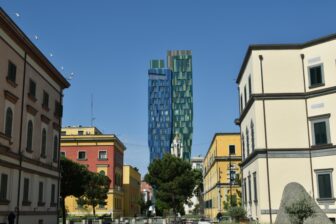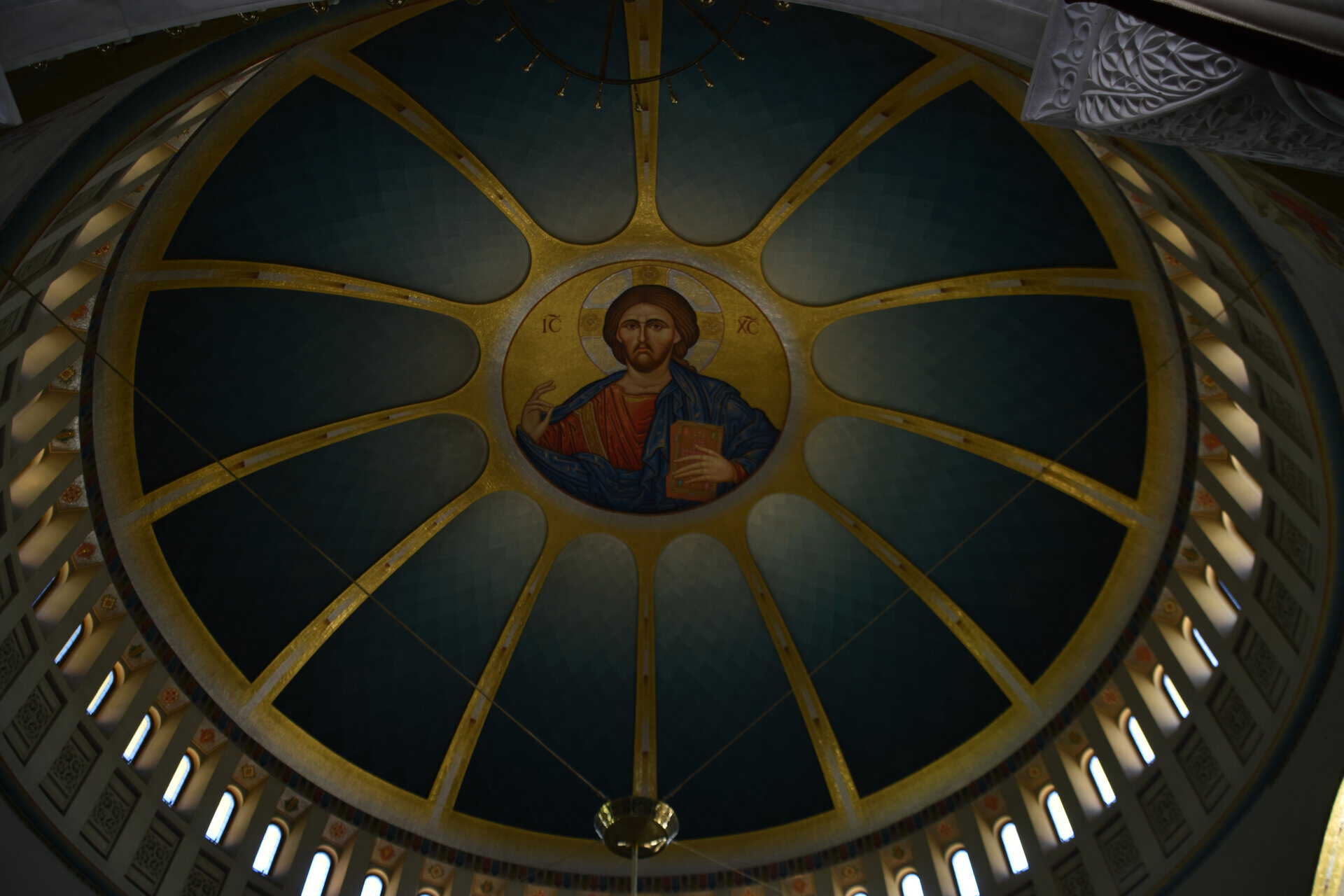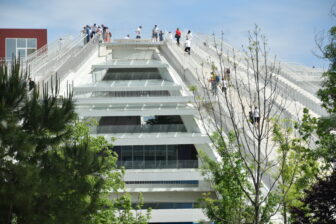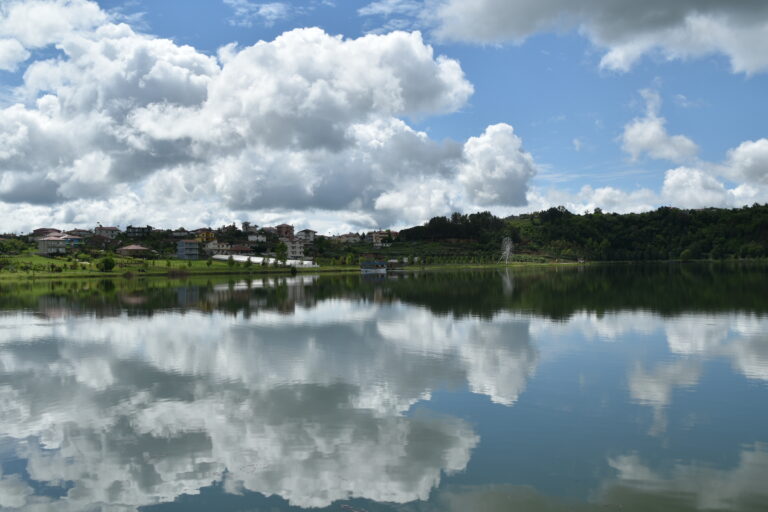
[Apr. 2024] On our second day in Albania, we left Tirana for Berat in the south.
Before that, we didn’t have any Albanian money, leks, so we asked where the money exchange was and went outside the hotel.
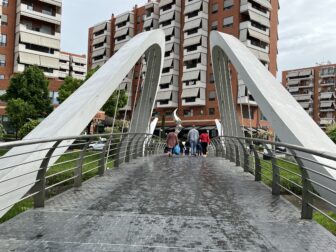
We hadn’t even taken a step outside the hotel the day before, so this was our first time in Tirana.
As we walked, we found that our hotel was in a corner of a newly developing area.
There are usually new buildings with unusual designs in this kind of towns, and here there was such a bridge.
After crossing the bridge, there were older buildings lined up with colourful makeup on the opposite bank.
This seemed to be a place where ordinary citizens live.
There was no problem exchanging money, and the rate was easy to remember, €1 = 100 leks.
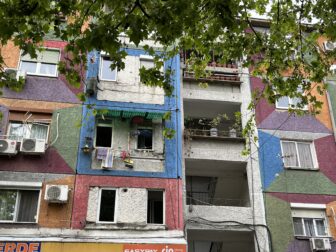
Our tour was small, with only 12 members, so we travelled by minibus.
It’s about 100km to Berat.
On the way, we learned some basic information about Albania.
Because it was an Italian tour, everything was in Italian.
My kind husband summarised and translated for me.
It seems that Albania was under Italian rule for quite some time.
First, there was the Republic of Venice, which seems to have occupied the northern half of the country.
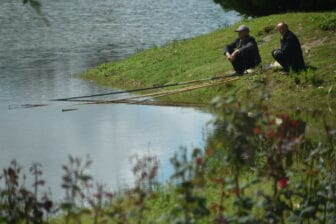
After that, it was ruled for a long time by Ottoman Turkey, and then by Italy again during the fascist era.
After World War II, it became a powerful communist country.
While neighbouring Yugoslavia took an independent path, Albania was closer to the Soviet Union.
However, after Stalin’s death, the Khrushchev government was too lenient, so it severed ties with the Soviet Union and moved closer to China for a time.
On the way, there was the remains of a large steel mill.
At one time, the factory was so prosperous that they were short of workers, but it collapsed as soon as they opened up the country.
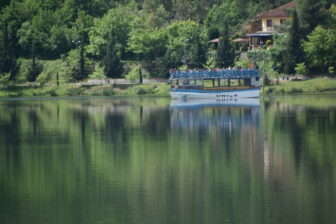
By the way, Albanians don’t call their country Albania.
The guide told us how they call it, but it’s hard to pick up a new word, so I looked it up and found out it’s Šchiparia.
The name Albania came about because the name of the first village that people from outside the country ended up in happened to be sounded like Albania, so Albania became the country’s name for overseas users.
On the way, we came across an area with many rusty wells.
They’re oil fields.
One day, a Hungarian discovered the oil field after noticing that the water in this area was oily.
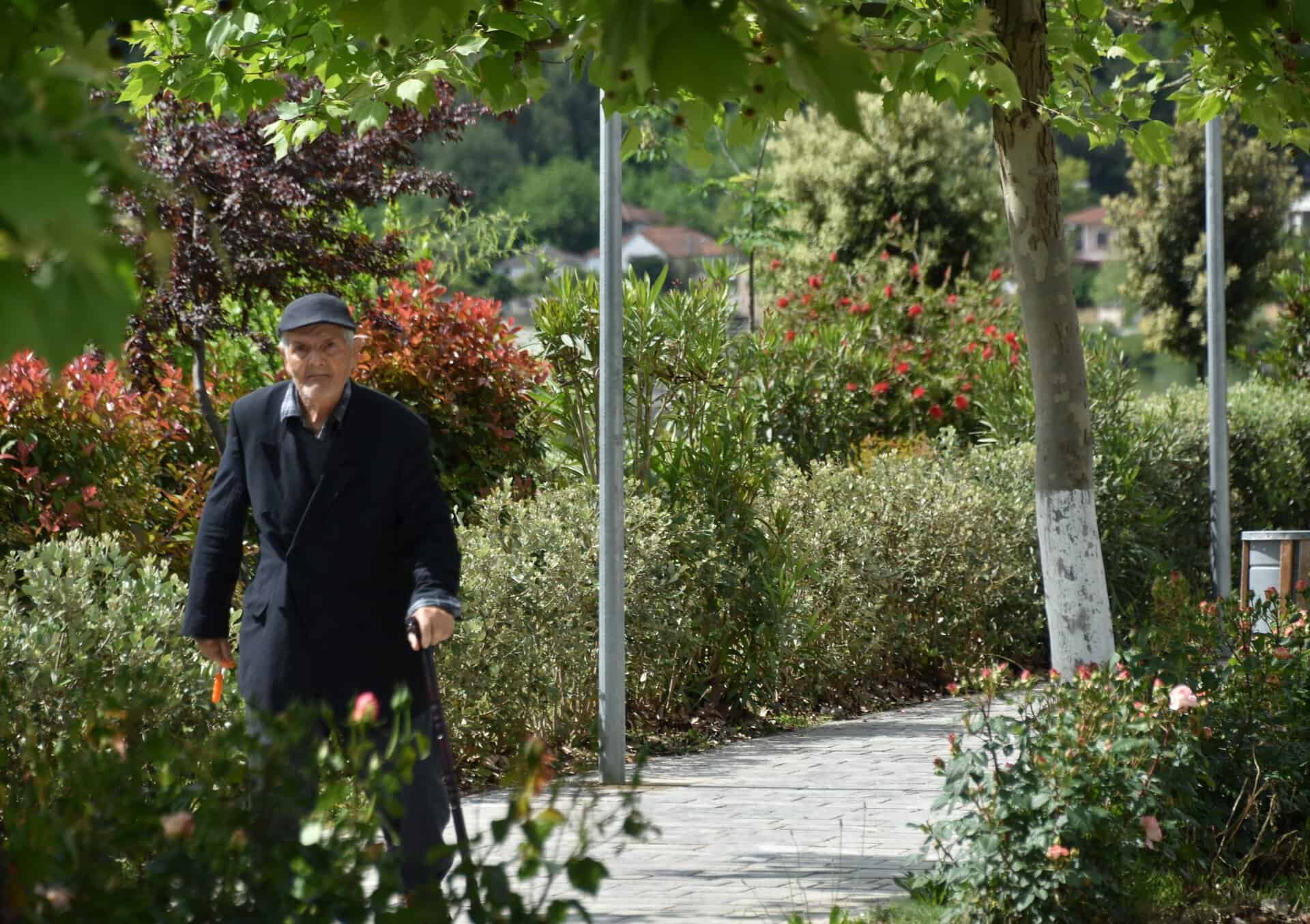
It’s a shallow oil field, and apparently it was useful during the war, but it’s no longer in use.
Now, it’s finally time for a toilet break.
We took a break by the lake in a place called Belsh, which is about halfway to Berat.
I saw a relaxing scene with people enjoying fishing and children on school trip cruising the lake in an old boat.
The lake was quiet and the reflections were truly beautiful.
An old man I passed seemed to be boasting, saying “It’s a beautiful place, isn’t it?”, although I couldn’t understand what he was saying.

